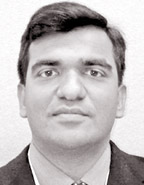Overcoming non-communicable disease - Asia's prime concern
By Anuradha KODAGODA
The Asia region is the fastest growing area of non-communicable
diseases (NCDs) . As Asians we always tend to think that compared to
Westerners we are ahead in terms of health due to the friendly lifestyle
that we lead, and with less amount of industrialisation, compared to
them. However, recent statistics show that Asians are at a higher risk
of contacting non-communicable diseases compared to the other regions.
 |
|
Dr Prasad Katulanda |
According to the 2011 World Bank report, non-communicable diseases
are currently responsible for over half of the disease burden in Asia.
Globally, deaths from non-communicable conditions are expected to
increase by 15 percent (44 million deaths) in the next 10 years.
South-East Asia is predicted to have the greatest number of these deaths
(10.4 million).
Other than that the World Health Organisation predicts that, over the
next 10 years, Asia will see a major increase in deaths from
non-communicable conditions.
"Non communicable diseases include heart disease, diabetes, stroke,
chronic lung disease, chronic liver disease, injuries, poisoning and
mental disease. However, the NCDs other than the injuries and mental
diseases have gained more interest recently due to the fact that they
affect billions of people worldwide but have become more important in
the South Asian region.
In addition, all these NCDs are related to only a few modifiable risk
factors, cigarette smoking, and unhealthy eating habits, lack of
physical exercise and alcohol," speaking to the Sunday Observer Dr
Prasad Katulanda said.
"In September 2011, the UN General Assembly recognised that urgent
global action is needed to strengthen the capacity for quality research
into the prevention and control of non-communicable diseases.
"Traditionally the communicable diseases such as malaria, diarrhoeal
diseases, polio, measles, mumps rubella and other infectious diseases
were considered the major public health problems in most developing
countries. They were responsible for the most number of deaths and
morbidity in these countries. However, with time the improvement of
health care services in the country and the awareness made among the
communities, we were able to control the infectious diseases and it
reduced drastically, Even though we could control this same, with the
huge industrialisation and due to the changes happened in our
traditional life patterns, non-communicable disease spread severely.
However, these NCDs were not taken much in to consideration because a
few decades back heart attaks, strokes, diabetes, cholesterol and many
other diseases were not familiar at all.
 "However, today even a 10 year old child may be having diabetes,
heart attacks and any other NCDs due to the stressful, unhealthy life
patterns. In addition, with the rapid urbanisation and change of
lifestyle from traditional to the more western and urban lifestyles, a
new set of health problems have emerged as main causes of mortality and
morbidity," he further said. "However, today even a 10 year old child may be having diabetes,
heart attacks and any other NCDs due to the stressful, unhealthy life
patterns. In addition, with the rapid urbanisation and change of
lifestyle from traditional to the more western and urban lifestyles, a
new set of health problems have emerged as main causes of mortality and
morbidity," he further said.
Even though nowadays, much attention has been paid to nutritious
foods and the importance of maintaining a healthy and slim figure, it is
doubtful that we understand what is meant by healthy eating habits.
Healthy eating is not about strict nutrition philosophies, staying
unrealistically thin, or depriving ourselves of the foods that we love.
Rather, it's about feeling great, having more energy and create a good
balance or communication with our body and mind.
Because it is a proven fact that if we are conscious about our body,
we may feel our diseases or imbalances inside the body.
"The other important aspect is that once established these NCDs
become lifelong and therefore we call them chronic NCDs. Chronic NCDs
affect mainly the older people but today we see more and more young
adults and middle aged people being affected. In addition to the
morbidity and mortality to the affected people these have profound
implications to the society.
As a result the families and the younger generation get affected; the
economies of LMICs get affected as more people become chronically ill.
They won't be able to contribute to the productivity but also become
dependent," he said.
"In terms of non-communicable diseases, Ischemic heart disease has
become the number one killer in Sri Lanka and also in many other
developing countries. Diabetes, stroke and chronic kidney diseases are
other important health problems. Lung diseases due to cigarette smoking
and liver diseases due to alcohol and non- alcoholic fatty liver disease
are fast becoming other important non-communicable diseases,"
It is quite essential for us to understand this situation which is
becoming even more complicated in future. The ASCEND program is one good
initiative that we could come across with the support of government
authorities. ASCEND stands for Asian Collaboration for Excellence in
Non-Communicable Disease Prevention and Control.
The primary aim of the program is to strengthen the capacity on NCD
related research in the three countries, Sri Lanka, India and Malaysia
through training a cohort of mid-career professionals in these three
countries on NCD related research. "Already 25 professionals from these
three countries have started training since 2011. Another 26 started the
program recently. Altogether 18 trainees are undergoing training under
this program from Sri Lanka," Dr. Prasad said.
"The overall Director of the ASCEND program is Prof. Brian Oldenburg
from Monash University Australia who is an eminent researcher on
non-communicable diseases.
"I have carried out many research and preventive programs on diabetes
and non-communicable diseases and lead the team in Sri Lanka as the
country Director along with Dr. Indika Karunathilake. Prof. Edwin Fisher
from University of North Carolina USA, Prof. K. Thanakappan from Sri
Chithra Institute for Medical Sciences and Technology from India and
Prof. Khalid Kadir from Monash University Malaysia are the other country
directors from the respective countries.
"The support that we are getting from the Ministry of Health is
remarkable. Even though very limited budgets have been allocated
specifically for NCDs, with the collaboration of the Ministry of Health
we try our best to improve the facilities in every District in a more
appropriate and efficient manner.
"Director of the Non-Communicable Diseases of the Ministry of Health,
Dr. Thalatha Liyanage is actively involved in this year's program along
with many officials from the Ministry with the guidance of the Minister
of Health, Maithripala Sirisena.
"The World Health Organisation and the JICA program also have
extended their support to the program in Sri Lanka.
"Many senior academics and researchers are involved in the training
program as resource personnel and as research supervisors,"
"We expect that this program will help strengthen the capacity of Sri
Lanka and the region on the fight against non-communicable diseases," he
said.
|

